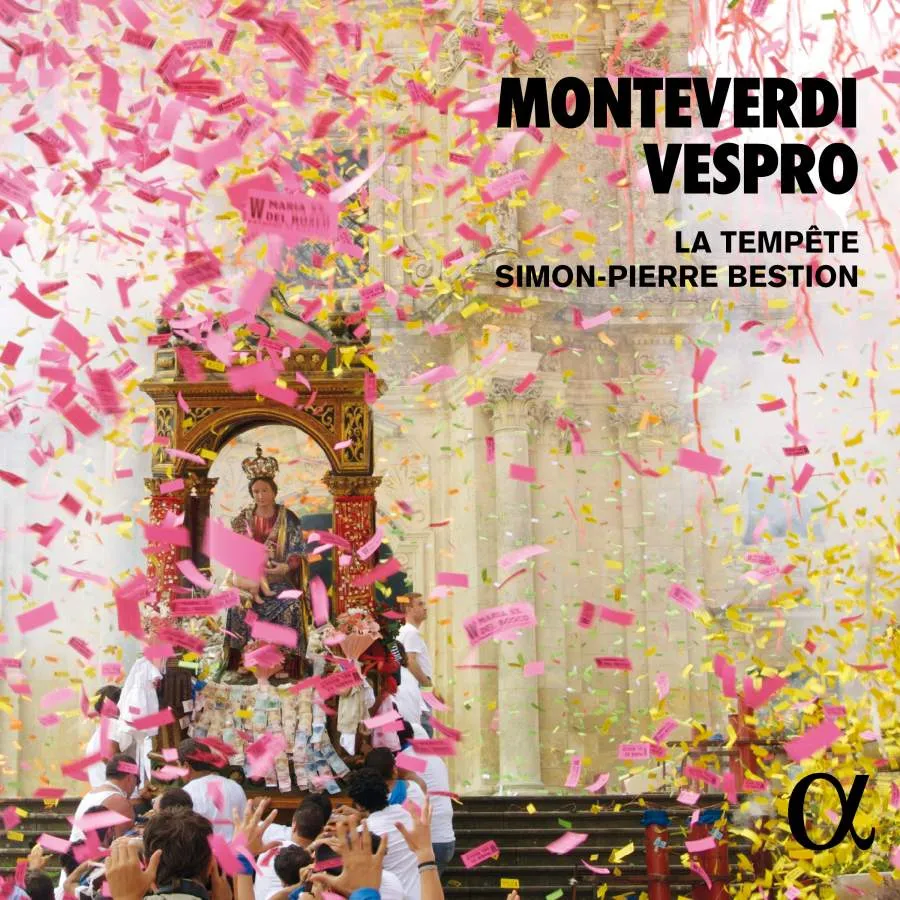
Monteverdi Vespro della beate Vergine (1610) Claire Lefilliâtre (soprano), Fiona McGown (mezzo-soprano), Eugénie de Mey (alto), Francisco Mañalich, Sébastien Obrecht, Pierre-Antoine Chaumien (tenor), Renaud Bres, Arnaud Richard (bass); La Tempête/Simon-Pierre Bestion Alpha Classics ALPHA 552 142:07 mins (2 discs)
Simon-Pierre Bestion has radically altered Monteverdi’s Vespers. His aim is immersion: not in Monteverdi’s music, but in what Bestion imagines to be the religious fervour of c1600. Pushed to their limits, the project’s superb musicians deliver moments both glorious and ludicrous. Silliness comes when Bestion pumps up Monteverdi with putative ‘Eastern’ practices – imagined to stem from, for instance, Persia, Armenia and Turkey – that he holds to have influenced music-making in 17th-century Venice. No matter that Monteverdi composed his Vespers in Mantua. Instead of period insights based on research, Bestion samples 19th-century musical Orientalism, pushing the singers to scoop, add ornamental loops, sing piercingly and race forward; in tutti sections they sound rather like the Bulgarian State Television Female Vocal Choir. Claiming to ‘conjure’ lost traditions, Bestion in fact lards Monteverdi’s score with a Western fantasy of Eastern abandonment.
The recording includes some brilliant tracks. In more intimate sections, notably the Dixit Dominus, Laetatus sum and Duo Seraphim, the licence Bestion grants his performers accommodates ravishing effects. The instrumentalists strut as persuasively as they wax lyrical; the vocalists, when soft, blend gorgeously. Extemporisation by both players and singers is often stunning. To turn Monteverdi’s isolated movements into a full service of worship, Bestion adds 17th-century fauxbourdons – that is, lines added in parallel fourths and sixths below the bass – into which the musicians tuck some ear-tickling noodles. But Bestion’s chant selection, sourced from the standardised Catholic chant collection used today, is ahistorical. Like the ‘Eastern’ touches he elsewhere applies, the chant makes these Vespers a Disney-like invention, rather than a persuasive re-think of Monteverdi’s vision.
Berta Joncus